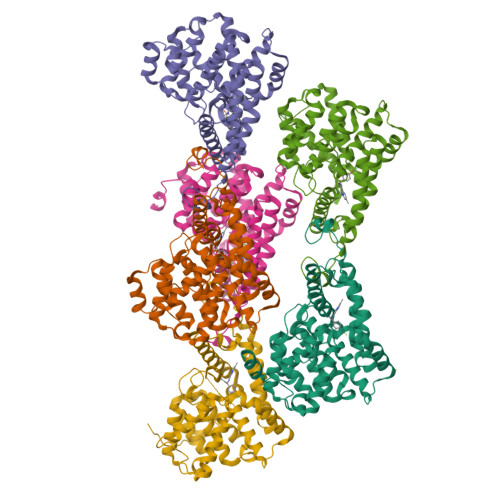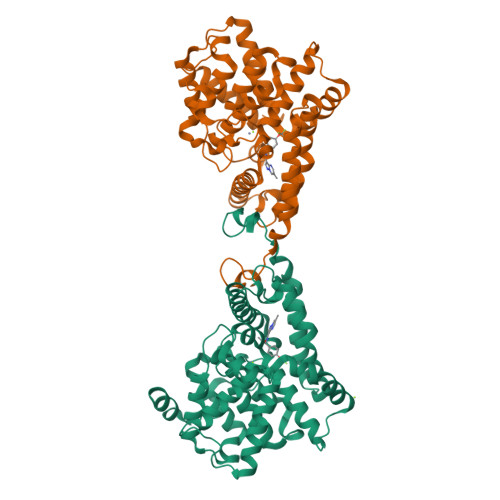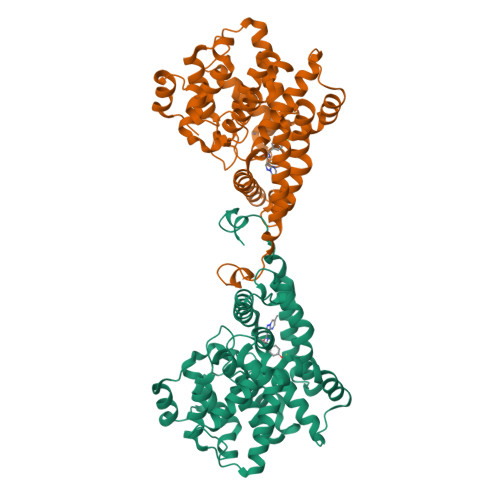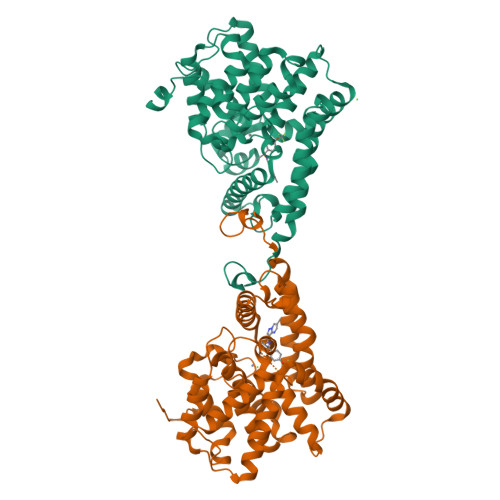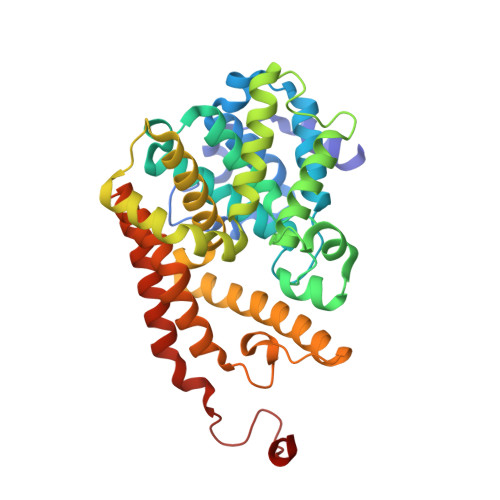Discovery of an Orally Bioavailable, Brain-Penetrating, in Vivo Active Phosphodiesterase 2A Inhibitor Lead Series for the Treatment of Cognitive Disorders.
Mikami, S., Sasaki, S., Asano, Y., Ujikawa, O., Fukumoto, S., Nakashima, K., Oki, H., Kamiguchi, N., Imada, H., Iwashita, H., Taniguchi, T.(2017) J Med Chem 60: 7658-7676
- PubMed: 28759228
- DOI: https://doi.org/10.1021/acs.jmedchem.7b00709
- Primary Citation of Related Structures:
5XKM - PubMed Abstract:
Herein, we describe the discovery of a potent, selective, brain-penetrating, in vivo active phosphodiesterase (PDE) 2A inhibitor lead series. To identify high-quality leads suitable for optimization and enable validation of the physiological function of PDE2A in vivo, structural modifications of the high-throughput screening hit 18 were performed. Our lead generation efforts revealed three key potency-enhancing functionalities with minimal increases in molecular weight (MW) and no change in topological polar surface area (TPSA). Combining these structural elements led to the identification of 6-methyl-N-((1R)-1-(4-(trifluoromethoxy)phenyl)propyl)pyrazolo[1,5-a]pyrimidine-3-carboxamide (38a), a molecule with the desired balance of preclinical properties. Further characterization by cocrystal structure analysis of 38a bound to PDE2A uncovered a unique binding mode and provided insights into its observed potency and PDE selectivity. Compound 38a significantly elevated 3',5'-cyclic guanosine monophosphate (cGMP) levels in mouse brain following oral administration, thus validating this compound as a useful pharmacological tool and an attractive lead for future optimization.
Organizational Affiliation:
Pharmaceutical Research Division, Takeda Pharmaceutical Company Limited , 26-1, Muraoka-Higashi 2-chome, Fujisawa, Kanagawa 251-8555, Japan.








